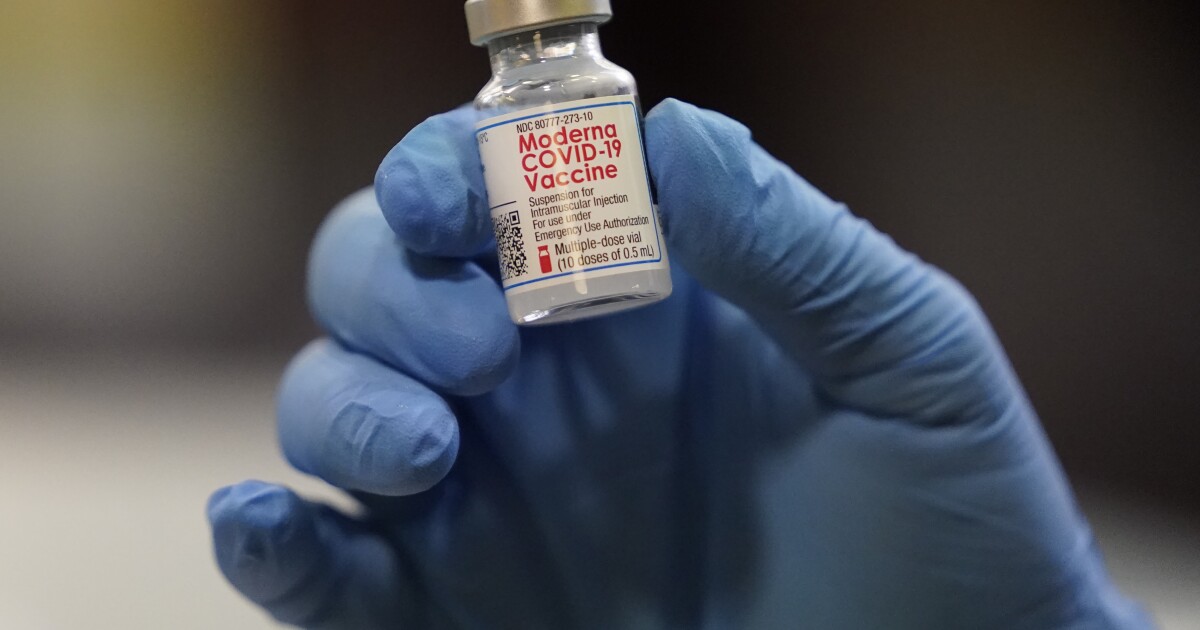Millions of Americans will be able to access COVID-19 booster shots, but figuring out who should get them can be confusing, adding that this time people may choose to switch brands for the extra dose.
A number of factors, such as the initial vaccination and the date of the second dose, help determine who qualifies for the third dose. In the United States, booster doses will be free and available at pharmacies, doctor’s offices, and clinics.
Here are some things to know:
1) WHY ARE BOOSTER DOSES NEEDED?
Fully vaccinated people have strong protection against hospitalization and death, but immunity can gradually weaken and the aggressive delta variant is spreading. The US authorities want to strengthen the protection of people at risk who were vaccinated months ago, but those who have not received the first or second dose remain the priority.
2) IS THERE A BOOSTER DOSE FOR THE THREE VACCINES AUTHORIZED IN THE UNITED STATES?
Yes. Pfizer’s have been available since last month and this week the government authorized Moderna and Johnson & Johnson’s, but who can access the third dose – and when they can get it – depends on which vaccine one received first.
3) CAN I GET THE BOOSTER VACCINE NOW?
Those who can access the third dose are those who received the Pfizer or Moderna vaccines if the last dose was at least six months ago, one is over 65 years old or is a young adult with health problems or has a job or working conditions. life that put you at risk and expose you to the coronavirus. This is the case of health workers, who are exposed to the virus and cannot go to work if they exhibit even the slightest symptoms.
4) WHAT IF I RECEIVED THE J&J VACCINE?
Anyone who received the J&J vaccine at least two months ago can get a booster, regardless of age or other factors.
5) WHY DO THE RECOMMENDATIONS FOR DIFFERENT VACCINES VARY?
One dose of J&J vaccine is less effective than two doses of Moderna or Pfizer and according to health authorities it is important that those vaccinated with J&J receive a similar level of protection. In terms of timing, J&J tested more people with a two-month booster than one to six months.
For those vaccinated with Moderna or Pfizer, there is no clear data that everyone needs the extra dose, but in some people immunity seemed to dissipate around six months.
6) WHAT IF I DON’T WANT TO WAIT 6 MONTHS?
Experts agree that booster doses ahead of time reduce benefits. Timing matters because the immune system gradually builds defenses over months, and allowing that to happen improves the chances that a later dose will provide even greater protection.
7) WHAT DOES MIXING THE DOSES MEAN?
It means that the booster dose is from a different brand than the original vaccine. That allows flexibility in situations like nursing homes, where only a booster dose could be given. It also allows people at risk of a side effect linked to one vaccine to switch to another.
8) SHOULD I LOOK FOR A DIFFERENT VACCINE?
The Centers for Disease Control and Prevention (CDC) and the Food and Drug Administration (FDA) did not recommend the change, but left the possibility open. Preliminary results from a government study found that an additional dose of any vaccine boosts the antibodies that fight the virus regardless of what the original vaccine was.
For those who received J&J, Moderna and Pfizer seem to provide a greater boost, but the researchers caution that the study is too small to determine whether one combination is better than another.
9) DO I NEED ANY REINFORCEMENT TO BE CONSIDERED FULLY VACCINATED?
No. The CDC says that a person is fully vaccinated as of the second week after the second dose of Moderna or Pfizer, or the single dose of J&J.
10) WILL THIS BE MY LAST REINFORCEMENT?
It is not known. Some scientists think that the COVID-19 vaccine may become commonplace like the annual flu shot, but researchers have yet to study how long the protection lasts from current booster doses.
–


